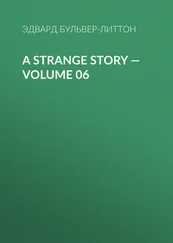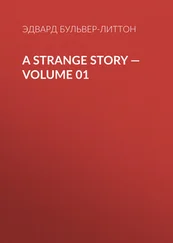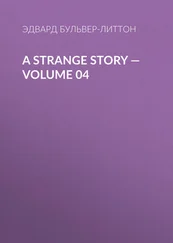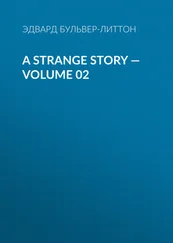Эдвард Бульвер-Литтон - A Strange Story — Complete
Здесь есть возможность читать онлайн «Эдвард Бульвер-Литтон - A Strange Story — Complete» — ознакомительный отрывок электронной книги совершенно бесплатно, а после прочтения отрывка купить полную версию. В некоторых случаях можно слушать аудио, скачать через торрент в формате fb2 и присутствует краткое содержание. Жанр: foreign_prose, literature_19, Европейская старинная литература, foreign_antique, на английском языке. Описание произведения, (предисловие) а так же отзывы посетителей доступны на портале библиотеки ЛибКат.
- Название:A Strange Story — Complete
- Автор:
- Жанр:
- Год:неизвестен
- ISBN:нет данных
- Рейтинг книги:3 / 5. Голосов: 1
-
Избранное:Добавить в избранное
- Отзывы:
-
Ваша оценка:
- 60
- 1
- 2
- 3
- 4
- 5
A Strange Story — Complete: краткое содержание, описание и аннотация
Предлагаем к чтению аннотацию, описание, краткое содержание или предисловие (зависит от того, что написал сам автор книги «A Strange Story — Complete»). Если вы не нашли необходимую информацию о книге — напишите в комментариях, мы постараемся отыскать её.
A Strange Story — Complete — читать онлайн ознакомительный отрывок
Ниже представлен текст книги, разбитый по страницам. Система сохранения места последней прочитанной страницы, позволяет с удобством читать онлайн бесплатно книгу «A Strange Story — Complete», без необходимости каждый раз заново искать на чём Вы остановились. Поставьте закладку, и сможете в любой момент перейти на страницу, на которой закончили чтение.
Интервал:
Закладка:
Edward Bulwer-Lytton
A Strange Story — Complete
PREFACE
Of the many illustrious thinkers whom the schools of France have contributed to the intellectual philosophy of our age, Victor Cousin, the most accomplished, assigns to Maine de Biran the rank of the most original.
In the successive developments of his own mind, Maine de Biran may, indeed, be said to represent the change that has been silently at work throughout the general mind of Europe since the close of the last century. He begins his career of philosopher with blind faith in Condillac and Materialism. As an intellect severely conscientious in the pursuit of truth expands amidst the perplexities it revolves, phenomena which cannot be accounted for by Condillac’s sensuous theories open to his eye. To the first rudimentary life of man, the animal life, “characterized by impressions, appetites, movements, organic in their origin and ruled by the Law of Necessity,” 1 1 OEuvres inedites de Maine de Biran, vol. i. See introduction.
he is compelled to add, “the second, or human life, from which Free-will and Self-consciousness emerge.” He thus arrives at the union of mind and matter; but still a something is wanted,—some key to the marvels which neither of these conditions of vital being suffices to explain. And at last the grand self-completing Thinker attains to the Third Life of Man in Man’s Soul.
“There are not,” says this philosopher, towards the close of his last and loftiest work,—“there are not only two principles opposed to each other in Man,—there are three. For there are in him three lives and three orders of faculties. Though all should be in accord and in harmony between the sensitive and the active faculties which constitute Man, there would still be a nature superior, a third life which would not be satisfied; which would make felt (ferait sentir) the truth that there is another happiness, another wisdom, another perfection, at once above the greatest human happiness, above the highest wisdom, or intellectual and moral perfection of which the human being is susceptible.” 2 2 OEuvres inedites de Maine de Biran, vol. iii. p. 546 (Anthropologie).
Now, as Philosophy and Romance both take their origin in the Principle of Wonder, so in the “Strange Story” submitted to the Public it will be seen that Romance, through the freest exercise of its wildest vagaries, conducts its bewildered hero towards the same goal to which Philosophy leads its luminous Student, through far grander portents of Nature, far higher visions of Supernatural Power, than Fable can yield to Fancy. That goal is defined in these noble words:—
“The relations (rapports) which exist between the elements and the products of the three lives of Man are the subjects of meditation, the fairest and finest, but also the most difficult. The Stoic Philosophy shows us all which can be most elevated in active life; but it makes abstraction of the animal nature, and absolutely fails to recognize all which belongs to the life of the spirit. Its practical morality is beyond the forces of humanity. Christianity alone embraces the whole Man. It dissimulates none of the sides of his nature, and avails itself of his miseries and his weakness in order to conduct him to his end in showing him all the want that he has of a succor more exalted.” 3 3 OEuvres inedites de Maine de Biran, vol. iii. p. 524.
In the passages thus quoted, I imply one of the objects for which this tale has been written; and I cite them, with a wish to acknowledge one of those priceless obligations which writings the lightest and most fantastic often incur to reasoners the most serious and profound.
But I here construct a romance which should have, as a romance, some interest for the general reader. I do not elaborate a treatise submitted to the logic of sages. And it is only when “in fairy fiction drest” that Romance gives admission to “truths severe.”
I venture to assume that none will question my privilege to avail myself of the marvellous agencies which have ever been at the legitimate command of the fabulist.
To the highest form of romantic narrative, the Epic, critics, indeed, have declared that a supernatural machinery is indispensable. That the Drama has availed itself of the same license as the Epic, it would be unnecessary to say to the countrymen of Shakspeare, or to the generation that is yet studying the enigmas of Goethe’s “Faust.” Prose Romance has immemorially asserted, no less than the Epic or the Drama, its heritage in the Realm of the Marvellous. The interest which attaches to the supernatural is sought in the earliest Prose Romance which modern times take from the ancient, and which, perhaps, had its origin in the lost Novels of Miletus; 4 4 “The Golden Ass” of Apuleius.
and the right to invoke such interest has, ever since, been maintained by Romance through all varieties of form and fancy,—from the majestic epopee of “Telemaque” to the graceful fantasies of “Undine,” or the mighty mockeries of “Gulliver’s Travels” down to such comparatively commonplace elements of wonder as yet preserve from oblivion “The Castle of Otranto” and “The Old English Baron.”
Now, to my mind, the true reason why a supernatural agency is indispensable to the conception of the Epic, is that the Epic is the highest and the completest form in which Art can express either Man or Nature, and that without some gleams of the supernatural, Man is not man nor Nature, nature.
It is said, by a writer to whom an eminent philosophical critic justly applies the epithets of “pious and profound:” 5 5 Sir William Hamilton: Lectures on Metaphysics, p. 40.
“Is it unreasonable to confess that we believe in God, not by reason of the Nature which conceals Him, but by reason of the Supernatural in Man which alone reveals and proves Him to exist?... Man reveals God: for Man, by his intelligence, rises above Nature; and in virtue of this intelligence is conscious of himself as a power not only independent of, but opposed to, Nature, and capable of resisting, conquering, and controlling her.” 6 6 Jacobi: Von der Gottlichen Dingen; Werke, p. 424-426.
If the meaning involved in the argument, of which I have here made but scanty extracts, be carefully studied, I think that we shall find deeper reasons than the critics who dictated canons of taste to the last century discovered,—why the supernatural is indispensable to the Epic, and why it is allowable to all works of imagination, in which Art looks on Nature with Man’s inner sense of a something beyond and above her.
But the Writer who, whether in verse or prose, would avail himself of such sources of pity or terror as flow from the Marvellous, can only attain his object in proportion as the wonders he narrates are of a kind to excite the curiosity of the age he addresses.
In the brains of our time, the faculty of Causation is very markedly developed. People nowadays do not delight in the Marvellous according to the old childlike spirit. They say in one breath, “Very extraordinary!” and in the next breath ask, “How do you account for it?” If the Author of this work has presumed to borrow from science some elements of interest for Romance, he ventures to hope that no thoughtful reader—and certainly no true son of science—will be disposed to reproach him. In fact, such illustrations from the masters of Thought were essential to the completion of the purpose which pervades the work.
That purpose, I trust, will develop itself in proportion as the story approaches the close; and whatever may appear violent or melodramatic in the catastrophe, will, perhaps, be found, by a reader capable of perceiving the various symbolical meanings conveyed in the story, essential to the end in which those meanings converge, and towards which the incidents that give them the character and interest of of fiction, have been planned and directed from the commencement.
Читать дальшеИнтервал:
Закладка:
Похожие книги на «A Strange Story — Complete»
Представляем Вашему вниманию похожие книги на «A Strange Story — Complete» списком для выбора. Мы отобрали схожую по названию и смыслу литературу в надежде предоставить читателям больше вариантов отыскать новые, интересные, ещё непрочитанные произведения.
Обсуждение, отзывы о книге «A Strange Story — Complete» и просто собственные мнения читателей. Оставьте ваши комментарии, напишите, что Вы думаете о произведении, его смысле или главных героях. Укажите что конкретно понравилось, а что нет, и почему Вы так считаете.












